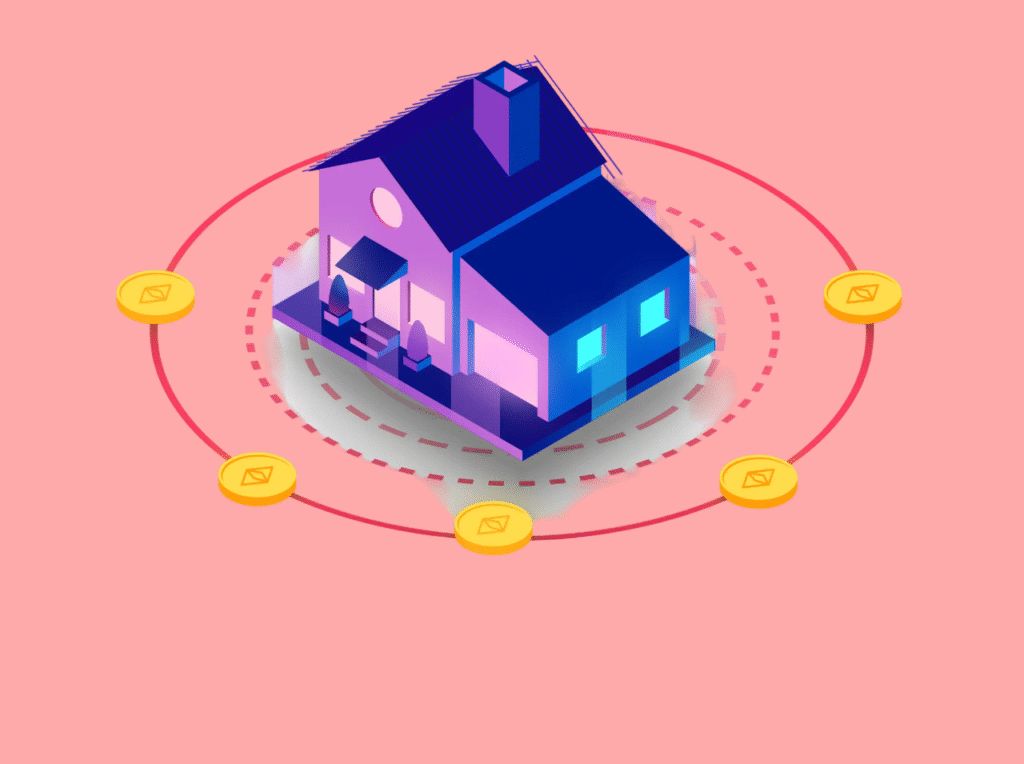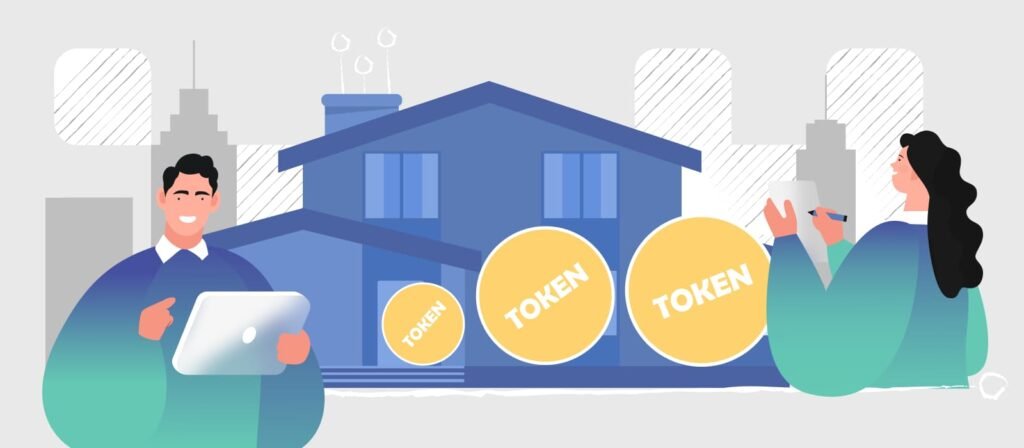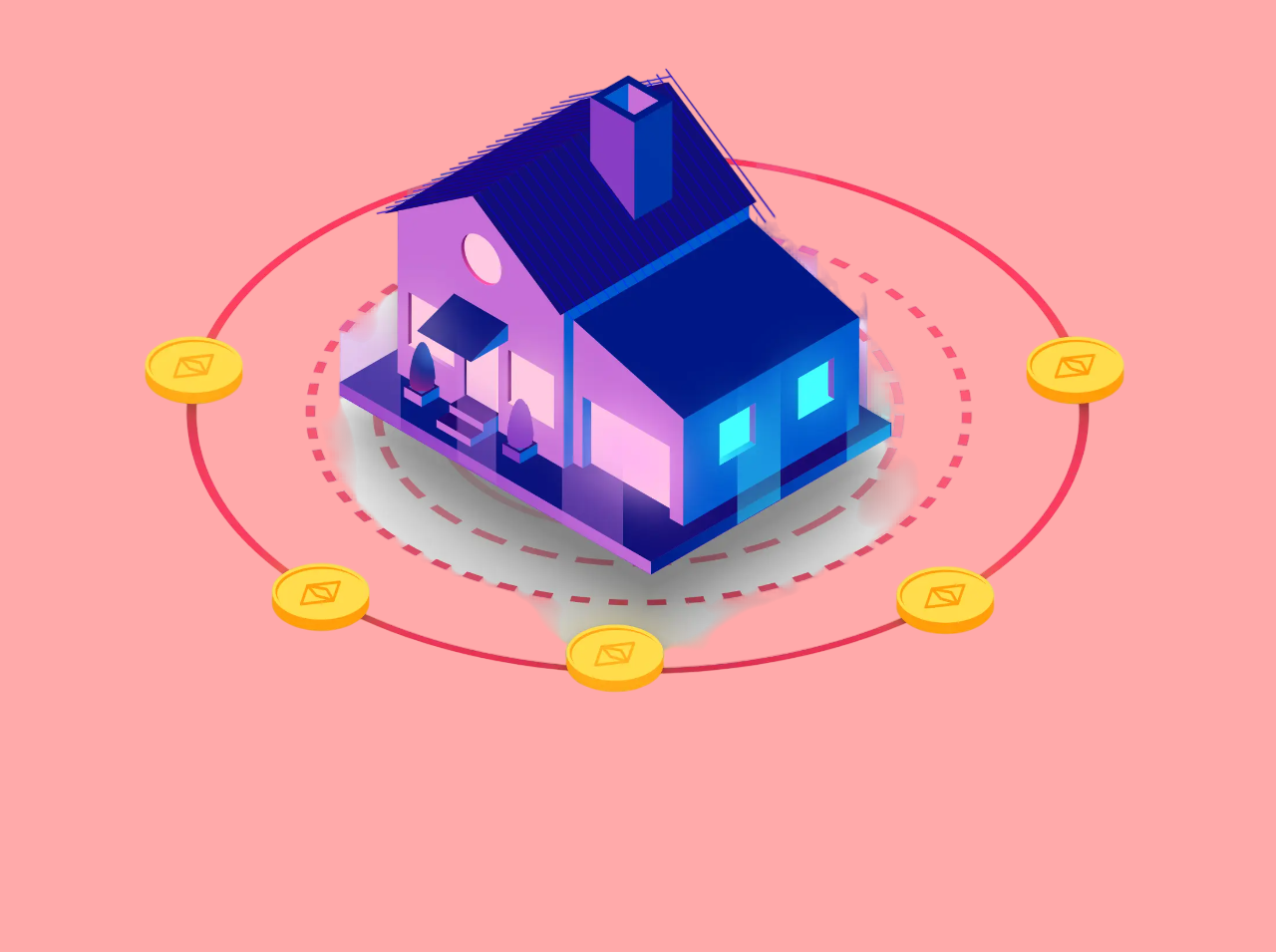A quiet revolution has been going on at the crossroads of finance, real estate, and technology in the last few years. People are calling it “real estate tokenization,” and it promises to change the way people buy and sell property. As blockchain technology becomes more accepted in the financial world, tokenizing real-world assets like real estate opens up possibilities that were once thought impossible. This article will explain what real estate tokenization is, how it works, its pros and cons, and why people are saying it’s the future of investing in real estate.
What is the process of tokenizing real estate?
Real estate tokenization is the process of turning ownership of a piece of real estate into digital tokens on a blockchain. Each token shows that you own a small part of the property. You can then trade these tokens on digital platforms, which gives investors a new way to buy, sell, or trade real estate interests.
Tokenization lets people invest in a small part of a property instead of buying the whole thing or relying on complicated real estate investment trusts (REITs). Blockchain real estate platforms enable seamless transactions, improved liquidity, and reduced friction in property investment.
How Tokenization of Real Estate Works

- Picking an Asset:
A piece of real estate is chosen to be tokenized. This could be a building for business, a home, or a development project. - Valuation and Legal Structuring:
The property is given a value, and a legal entity is set up to own it. The organization gives out digital tokens that stand for shares in the property. - Token Creation:
Blockchain technology is used to make tokens that stand for ownership stakes. Each token is worth a certain amount of the property’s value. - Token Offering:
Investors can get tokens through a Security Token Offering (STO) or a private placement. People can buy tokens with either cash or digital currencies. - Secondary Market Trading:
After they are issued, tokens can be traded on legal digital asset exchanges, which gives them liquidity and helps people find the right price.
This process takes real-world assets and puts them in the digital world, which makes it easier and more flexible to invest.
Real estate tokenization has some important benefits
- Partial Ownership
In the past, you needed a lot of money to invest in real estate. Tokenization makes it easier for more people to invest by letting them buy a small part of a property. - More money available
Real estate is known for being hard to sell. Tokenized property can be traded on digital marketplaces, potentially allowing investors to exit their positions more easily. - Markets open 24 hours a day, 7 days a week
Tokenized assets can be traded 24/7 on blockchain platforms, which gives global investors more options than traditional real estate markets, which are only open during business hours. - Clear and Safe
Blockchain keeps a safe, unchangeable record of transactions and ownership. This openness can help cut down on fraud, mistakes, and arguments. - Less Expensive
Smart contracts can automate tasks like collecting rent, paying dividends, and checking for compliance. This cuts down on the need for middlemen and lowers fees. - Accessibility around the world
Anyone with internet access can invest in tokenized real estate, which makes it easier for people from all over the world to get involved and spread their investments.
Examples and Use Cases
- Projects in Commercial Real Estate
Tokenization is especially appealing in commercial real estate, where projects usually need a lot of money. RealT, SolidBlock, and Brickblock are some of the platforms that have successfully tokenized hotels, office buildings, and multifamily homes. - Real Estate for Homes
Tokenizing single-family homes and apartment buildings lets investors earn rental income based on how much of the property they own. RealT, for instance, has turned many homes in Detroit and other U.S. cities into tokens. - Building and Developing Projects
Real estate developers are using tokenization to raise money for projects by giving investors early-stage tokens. This method can be used instead of getting a loan from a bank. - Funds for Investing in Real Estate
Funds can give out tokens that stand for shares in a diverse portfolio of real estate assets. This combines the benefits of traditional REITs with the freedom of digital assets.
Things to Think About and Problems

Real estate tokenization has a lot of potential, but it also has a lot of problems:
- Uncertainty in the rules
Different places have different securities laws, and tokenized real estate must follow these rules. The lack of global regulatory harmonization makes things more complicated. - Legal Structures of Ownership
Investors don’t own the property itself; instead, they own a share of a company that owns the property. To protect the rights of investors, there needs to be clear legal frameworks. - Risk on the Platform
Tokenized real estate can only work if there are safe and reliable platforms. When choosing a tokenization provider, investors should think about their reputation, history, and compliance. - Adoption in the Market
Tokenization is still in its early stages. For the ecosystem to grow, there needs to be more liquidity in the market, more education for investors, and more institutions using it. - Safety on the Internet
There is a risk that hackers will get into digital tokens. To keep assets safe, you need to use cold storage, encryption, and strong authentication methods.
Expert Advice and Things to Think About
Leading experts in fintech and real estate say that investors who are interested in real estate tokenization should use the following strategies:
- Begin Small
Because the Prince George’s County market is always changing, it’s best to start with small investments. Pay attention to properties and platforms that have been thoroughly checked out and follow all the rules and laws. - Add variety
Put money into a number of tokenized properties in different parts of the world and types of assets. Diversification is still a basic rule of investing, even in the digital age. - Stay up to date
Keep up with changes in the law and new platforms that are coming out. The landscape is changing, and investors who know what they’re doing will be in the best position to take advantage of new opportunities. - Check the underlying assets
Don’t be swayed by flashy token offerings. Always look at the property itself, including where it is, how much money it could make, and how much it is worth. - Learn about your liquidity options
Some platforms have markets that are easier to trade than others. Before you invest, make sure you know how and where to trade your tokens.
Don’t miss:
- How to Invest in Real Estate with Little Money: Beginner Tips That Work
- What Homebuyers Should Know About Eco-Friendly Real Estate
- Remote Work and Real Estate: How the Work-From-Home Era Is Changing What Buyers Want
What Blockchain Does for Real Estate
Blockchain technology is at the heart of real estate tokenization. It makes transactions safe, clear, and automatic.
- Contracts that are smart
Smart contracts allow agreements to be carried out automatically, without the need for middlemen, like paying rent or distributing dividends. This cuts costs and speeds up transactions. - Records that can’t be changed
The blockchain’s unchangeable ledger makes sure that ownership and transaction history can’t be changed, which builds trust and lowers the chance of disagreements. - Access Control and Compliance
Blockchain platforms can use digital identity and Know Your Customer (KYC) tools to make sure they follow the rules.
Real Estate Tokenization vs. Real Estate Investment Trusts
| Trait | Tokenization of Real Estate | Real Estate Investment Trusts (REITs) |
|---|---|---|
| Being the owner | Fractional, using digital tokens | Fractional, through shares in a trust |
| Cash flow | Different for each platform | Very liquid (public REITs) |
| Access | All over the world, 24 hours a day | Hours of the stock market |
| Minimum amount to invest | Low (as little as $50) | Higher (depends on the REIT) |
| Clearness | High (blockchain ledger) | Moderate (reporting on finances) |
| Costs | Lower (automating smart contracts) | More (management fees) |
REITs are still a popular way to invest, but real estate tokenization gives investors more options, new ideas, and access, especially for those who are used to digital investing.
The rules and regulations that govern the industry
Governments and regulators are starting to pay attention to property that is tokenized. The Securities and Exchange Commission (SEC) in the US considers most tokens to be securities, which means they have to follow securities laws.
Switzerland, Singapore, and Liechtenstein are examples of places that have made their rules clearer, which makes them good places for blockchain real estate projects.
Investors should make sure:
- The platform has a license or follows the rules that apply to it.
- The token shows that you own the underlying asset legally.
- There are protections in place for investors.
Future Outlook: What Lies Ahead?
Tokenization of real estate has a bright future, but it will probably change over time. Here are some important trends to keep an eye on:
- More Participation from Institutions: As rules become clearer, institutional investors may start tokenizing assets or taking part in token markets.
- Integration with DeFi (Decentralized Finance): Tokenized real estate can be used as collateral in DeFi systems, which lets people borrow and lend.
- Standardization and Interoperability: Industry standards will come about, making it easier for different systems to work together and more people to use them.
- AI and Data Analytics: Advanced analytics will improve the value of property, the assessment of risk, and the modeling of future events for tokenized assets.
- More democracy: Barriers to entry will keep coming down, making it easier for people all over the world to invest in real estate.
Conclusion: A New Era in Real Estate Investing
Real estate tokenization is a major change in how people and businesses buy and sell property. This model makes the real estate industry more accessible, efficient, and flexible than ever before by turning physical property into digital, tradeable tokens. This is a big change for an industry that has always had high entry barriers and low liquidity.
Real estate tokenization is more than just a trend; it’s a structural change that fits with the growing need for decentralized finance, fractional ownership, and investment opportunities around the world. The technology and rules are still being worked out, but the groundwork is in place for long-term growth.
Now is the time for smart investors to explore, learn, and make smart decisions about how to position themselves in this new market. People who adopt new ideas early often have a big advantage. With tokenized property, for example, more people can get involved and portfolios can be more dynamic.
Real estate is changing, and tokenization is at the forefront of this change, moving us toward a more digital and open future.






